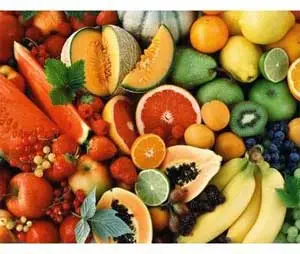
Among the water-soluble vitamins, the interconnected and mutually enhancing **B vitamins** stand out. All of them play a crucial role in maintaining the body’s vitality. The most significant among this group are undoubtedly **B2 (riboflavin)** and **B1 (thiamine)**. Professor G. Sherman, who studies longevity, considers **vitamin B2** essential for increasing lifespan: “A deficiency of **riboflavin** in the body is quite common,” he says. “The effects manifest over a considerable period, ultimately shortening lifespan.”
**Vitamin B2** is involved in vital biochemical processes, promoting growth and tissue repair. A deficiency sharply reduces the absorption of proteins and carbohydrates, as it is part of the enzymes that facilitate their oxidation in cells. A lack of riboflavin can also lead to digestive and nervous system disorders, chronic colitis and gastritis, general weakness, and various skin and eye diseases. To reduce the likelihood of these issues, it is necessary to consume 2-3 mg of vitamin B2 daily.
It can be found in peas, beans, Brussels sprouts, cauliflower, spinach, and rose hips (notably more than in other plant sources: up to 0.4 mg in 100 g of fresh fruit and up to 0.7 mg in dried). There is also a high concentration of **vitamin B2** in brewer’s yeast, liver, eggs, milk, and dairy products. Just remember that this **vitamin** is very sensitive to light: if milk is stored in glass containers exposed to light, it loses a significant amount of **riboflavin**. It is also partially destroyed during prolonged heat treatment.
An inseparable companion of **riboflavin** is **vitamin B1 (thiamine)**. It is necessary for the normal functioning of the nervous system, for normalizing stomach peristalsis, and for the acidity of gastric juice. If you experience insomnia, irritability, or digestive complaints, particularly constipation, these may be symptoms of insufficient **vitamin B1**. The daily requirement (2 mg) can be met with 300-400 g of whole grain black bread. There is also a lot of **vitamin B1** in bran, peas, beans, unrefined grains (barley, oats, buckwheat), liver, pork, and brewer’s yeast. **Vitamin B1** does not accumulate in the body, so foods containing it should be included in your diet daily. Like **vitamin B2**, **thiamine** does not withstand prolonged heating.
**Vitamin B5 (pantothenic acid)** is essential for the normal state of the endocrine and nervous systems. A deficiency can cause various metabolic disorders: dermatitis, depigmentation, and stunted growth. The daily requirement for **vitamin B5** is 10-20 mg. It is primarily found in yeast, liver, milk, egg yolk, as well as in peas and beans.
**Vitamin B6 (pyridoxine)** is very important for the body, as it aids in the absorption of both plant and animal proteins, as well as unsaturated fatty acids. Together with calcium, pyridoxine ensures the normal functioning of muscles and their effective relaxation. Typically, the need for **vitamin B6** (2-3 mg) is fully met by foods such as whole grain bread, bran, peas, beans, liver, meat, yeast, eggs, and milk.
**Vitamins B9 (folic acid)** and **B12 (cyanocobalamin)** work together in amino acid synthesis, blood formation, and regulating carbohydrate and fat metabolism in the body. A deficiency can lead to anemia. The daily requirement for these vitamins is quite minimal—measured in millionths of a gram. The best sources of **vitamin B9** are parsley leaves, legumes, and green onions, and it can also be found in bread and grain products.
**Vitamin B12** is virtually absent in plant foods. Its primary sources are animal products—liver, kidneys, meat, eggs, and milk.
To ensure you don’t experience a deficiency of **B vitamins**, regularly add dry yeast to your first courses (just 2 tablespoons a day is sufficient). Additionally, your diet should definitely include fermented dairy products—kefir, buttermilk, and yogurt. In Western Europe and America, where life expectancy is relatively high, yogurt consumption is considered essential for maintaining health.

